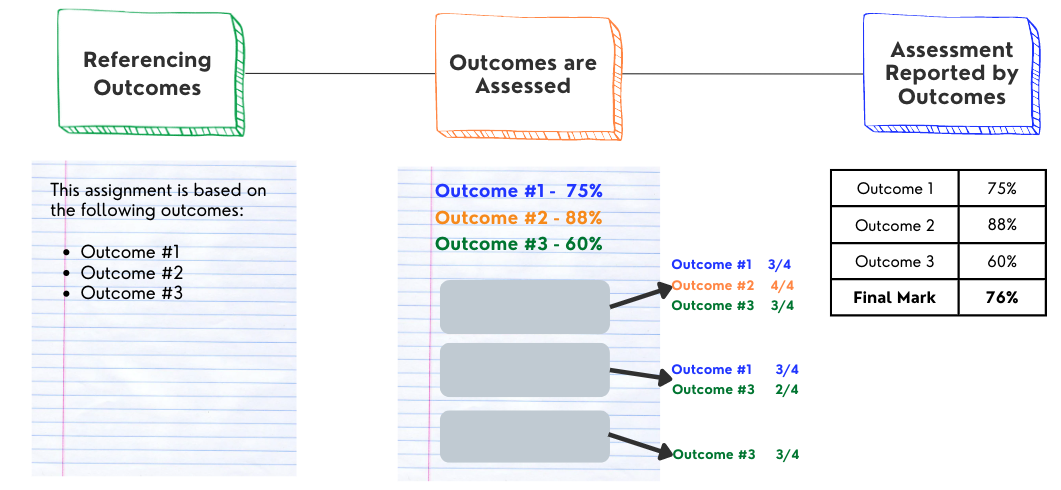-
Indigenization and Assessment – Rethinking Traditional Practice
“Education got us into this mess, education will get us out of it.” – Honourable Justice Murray Sinclair, Chair of the Truth and Reconciliation Commission, December 2015 Higher education is embarking on a journey of Indigenization, decolonization and reconciliation (IDR). Location will impact understanding of how to accomplish IDR and who will be involved in actualizing the initiative. One thing will be consistent, how we define assessment. Merriam-Webster’s definition is “the action or an instance of making a judgment about something.” This definition highlights the challenge when educators work to Indigenize assessment actions that may be subjective. In a world where people of First Nation, Inuit, and Métis identities face bias…
-
USask Assessment Principles
In the 2022-23, USask adopted an updated set of principles about how we try to assess students. Here are some tips about using each of the principles in your course. Each principle is defined and related posts are listed. Is aligned with learning outcomes and instructional strategies (assessment of learning). Alignment refers to the process of planning your learning outcomes to describe what your students will be able to do, know or value, and then planning how you will assess and teach based on those outcomes. When align to outcomes, you only gather evidence of academic achievement that is critical to those outcomes. Watch this video what “aligned” means Understand…
-
Assessing student participation and attendance
While everyone agrees a grade is designed to represent what a student has learned, some educators also think grades should be used to motivate students. When our students seemed less inclined to attend or participate during and after the pandemic, we turned to something the grading literature does not support – giving a grade for being in class. Here’s a quick summary of what the research says on the subject of giving grades for participating (i.e., the 1-mark quiz) or attending: You might think What research says What experts recommend Giving a small grade for attendance motivates students to come to class You should include academic achievements, not behaviour, in…
-
An Outcomes-Based Practice Continuum
This article will discuss a continuum of outcomes-based practices including referencing outcomes, assessing outcomes, and reporting student achievement on outcomes. Referencing Outcomes Referencing outcomes is a beginning outcomes-based practice. Outcomes are referenced within each assignment, often with the instruction section. Here, the instructor has created the assignment with the outcomes in mind and makes this visible. However, outcomes are not assessed separately, and assignments are given a ‘blanket score’ for multiple learning outcomes. Gradebook reporting is done by assignment. Assessing Outcomes within Assignments The next stage occurs when the outcomes within assignments are assessed. This stage provides valuable insight to determine the most important areas for improvement. Instructors create valid tools,…

